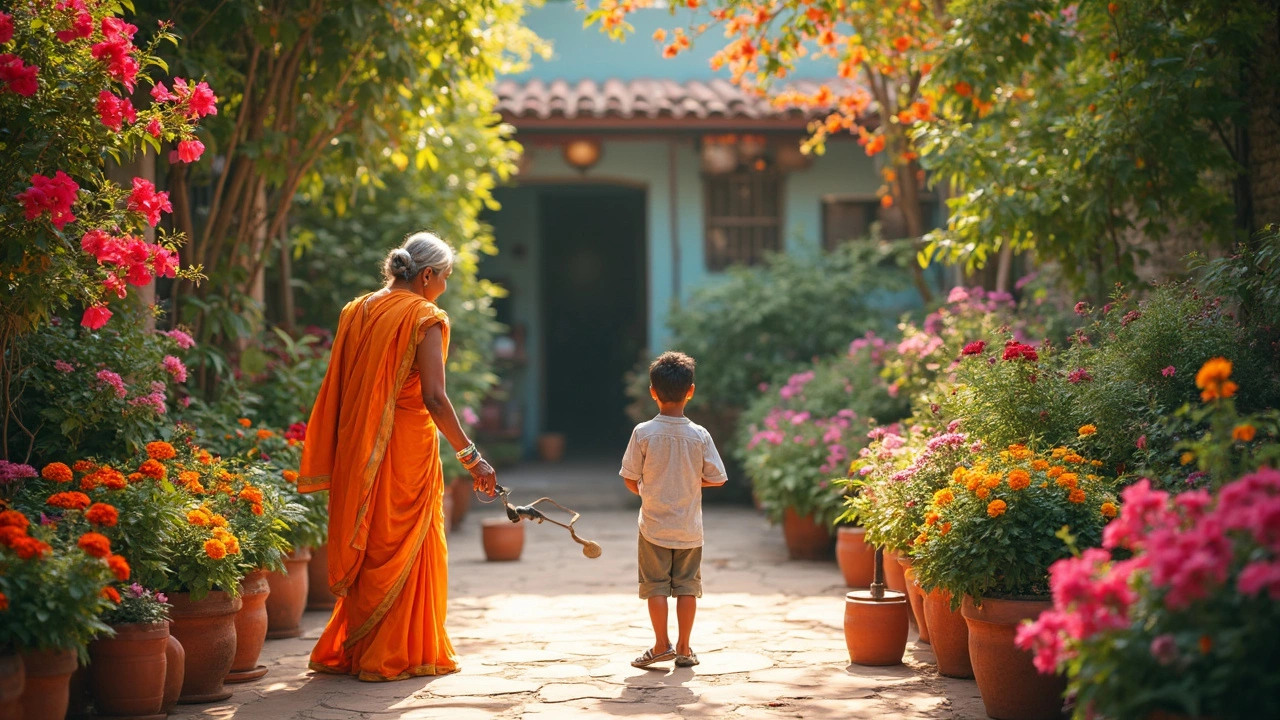Curious about which plant keeps color in your garden the longest? This article digs into the longest-lasting blooming plants suited for Indian weather, offers real-world care tips, and explains why some flowers just outshine the rest season after season. Learn what species to pick if you love vibrant, low-maintenance gardens that never look dull. Find out practical advice for beginner and seasoned home gardeners alike. Get ready to discover easy swaps and pro secrets for nonstop blooms.
Indian Gardens: What Works, What Doesn’t, and How to Make Them Thrive
When we talk about Indian gardens, gardens shaped by India’s unique climate, soil, and cultural habits. Also known as home gardens or urban green spaces, they’re not just about flowers—they’re about survival, food, and joy in a land where summer hits 45°C and monsoons drown everything. You can’t treat an Indian garden like a British one. Hydrangeas won’t survive afternoon sun on a concrete balcony. Rice won’t come back next year. And rabbit-proofing your zinnias? That’s a real thing here.
What makes an Indian garden work? It’s not fancy tools or imported seeds. It’s understanding garden soil improvement, how to break up dense clay with compost, leaf mold, or perlite. It’s knowing which year-round flowering plants, like lantana, crossvine, or hibiscus actually bloom through heat, rain, and cold snaps. It’s choosing native Indian vegetables, like amaranth, bitter gourd, or drumstick that grow without begging for water or fertilizer. These aren’t trends—they’re time-tested solutions for real Indian conditions.
And let’s talk space. Most Indian gardens aren’t sprawling lawns. They’re balconies facing south, terraces with cracked tiles, or patches behind apartment buildings. That’s why balcony gardens, optimized for sunlight direction and container size are so common. You don’t need acres—you need the right plant in the right spot. A basil plant on a west-facing balcony can feed your kitchen all year. A drip system with clogged emitters? That’s a problem you’ll fix with a toothpick and some patience.
There’s no single recipe for an Indian garden. But there are patterns. The best gardeners here don’t fight nature—they watch it. They notice when the soil cracks before summer. They know which flowers attract bees in January. They compost kitchen scraps into gold for their plants. They don’t buy expensive brands—they use what works, and they share what they learn.
Below, you’ll find real guides from real gardeners in India. No fluff. No theory. Just what to plant, where to put it, how to fix what breaks, and what to avoid. Whether you’re growing tomatoes in a bucket or trying to keep jasmine alive on a rooftop, you’ll find something that matches your patch of earth.
